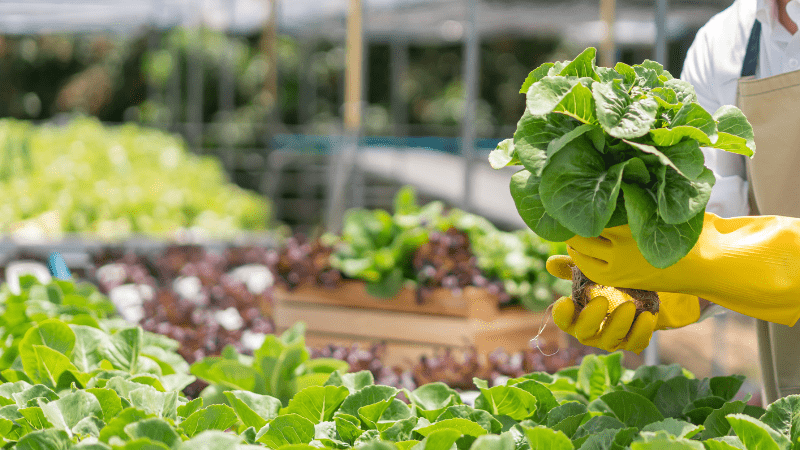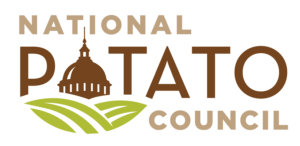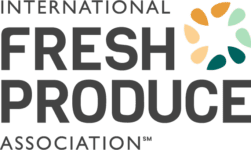
Proposed $60B addition to farm bill ag programs faces rocky road
A Republican proposal to add $60 billion in farm bill programs to the agriculture portion of a mega “Reconciliation Bill” hinges on securing votes for a controversial overhaul to the Supplemental Nutrition Assistance Program.
The proposed farm bill safety net package includes roughly $50 billion for crop reference prices, as well as money for crop insurance, dairy, livestock biosecurity and export trade promotion, sources told Politico.
That additional funding would come from $290 billion in cuts to SNAP spending over the next 10 years, according to draft text of the House Agriculture Committee markup released May 11.
Contentious cuts
The cuts would shift some federal SNAP spending to states for the first time in the history of the program, which helps to feed more than 40 million low-income Americans. Planned changes also include a plan to limit future benefits increases and new work requirements.
Before the May 13 markup, House Committee on Agriculture chair Glenn “GT” Thompson delivered an opening statement.
“The legislation before us today is a necessary component to prevent the largest tax increase in American history on our families, farmers, and small businesses — and to deliver critical funding necessary for the Trump administration to continue their work keeping Americans safe,” Thompson said. “More specifically, our reconciliation instructions provide the opportunity to restore integrity to the Supplemental Nutrition Assistance Program (SNAP) to make sure this essential program works for the most vulnerable and functions as Congress intended.
“Additionally, it allows for vital investment in our farm bill programs, addressing immediate needs for farmers, ranchers and rural communities. By putting the farm back in the farm bill, Congress will be better able to deliver a full, long-term reauthorization of a highly effective farm bill.”
The ranking member of the House Agriculture Committee said in remarks reported by Brownfield Ag News May 13 that the size of the proposed cuts in the reconciliation bill make the prospects of getting a five-year farm bill completed dim.
“I’ve told GT I’m going to stay at the table no matter what happens,” Rep. Angie Craig of Minnesota said. “But I’ve also warned him that anywhere near these cuts that the House instructions require of this committee are going to make it very, very problematic for me to get 150 Democrats to support the farm bill.”
During the markup process, a congressional committee debates, amends and votes on a proposed bill before it goes to the full House or Senate.
Specialty crop response
“We are grateful to Chairman GT Thompson and his staff for advancing these vital investments in specialty crops that the Specialty Crop Farm Bill Alliance has been proposing since 2023,” the Specialty Crop Farm Bill Alliance said in a statement released May 13 in response to the draft text.
 “Although our strong preference is to enact agriculture policy in the context of a comprehensive bipartisan farm bill, we appreciate the chairman’s long-standing support of our industry and for seizing this opportunity to support America’s specialty crop growers.
“Although our strong preference is to enact agriculture policy in the context of a comprehensive bipartisan farm bill, we appreciate the chairman’s long-standing support of our industry and for seizing this opportunity to support America’s specialty crop growers.
” … The investments proposed by Chairman Thompson today are a key piece of the puzzle, but even if they survive the entire budget reconciliation process and are enacted into law there is still work to be done. Senate rules prohibit many of the new and innovative policy initiatives we’ve been proposing from being included in this bill, such as investments in mechanization and automation and reforms to crop insurance that would provide many of our growers with an affordable and effective safety net for the very first time.”
The SCFBA is a national coalition of more than 150 organizations representing growers of fruits, vegetables, dried fruit, tree nuts, nursery plants and other products. It is chaired by Cathy Burns, CEO of the International Fresh Produce Association; Mike Joyner, president of the Florida Fruit & Vegetable Association; Dave Puglia, president and CEO of Western Growers; and Kam Quarles, CEO of the National Potato Council.
 A new farm bill has been long-delayed, with organizations including the National Potato Council repeatedly calling for its passage to be prioritized. In a May 2 statement, NPC expressed appreciation for Congressional efforts to put together the $4 trillion Reconciliation Bill that would include tax reforms and spending reductions but noted “the House Agriculture Committee is being asked to shoulder a very substantial portion of the overall savings, amounting to $230 billion in spending reductions.”
A new farm bill has been long-delayed, with organizations including the National Potato Council repeatedly calling for its passage to be prioritized. In a May 2 statement, NPC expressed appreciation for Congressional efforts to put together the $4 trillion Reconciliation Bill that would include tax reforms and spending reductions but noted “the House Agriculture Committee is being asked to shoulder a very substantial portion of the overall savings, amounting to $230 billion in spending reductions.”
“We appreciate Chairman (Glenn) Thompson’s efforts to make the best of a difficult situation. Our desire is for a full comprehensive farm bill this year, but politics are complicating that goal,” Quarles said in that statement. “If this alternative Reconciliation Bill is used to fund improvements for program crops, we need to ensure that America’s fruit and vegetable producers also have their funding priorities on it.”
 The International Fresh Produce Association has encouraged a focus on increasing access to and consumption of fresh fruits and vegetables in SNAP discussions. Mollie Van Lieu, IFPA vice president of nutrition and health policy, recently told The Packer that SNAP serves 42 million people a year with an average monthly benefit of about $211 per person, which breaks down to $60 a day or $6 per meal.
The International Fresh Produce Association has encouraged a focus on increasing access to and consumption of fresh fruits and vegetables in SNAP discussions. Mollie Van Lieu, IFPA vice president of nutrition and health policy, recently told The Packer that SNAP serves 42 million people a year with an average monthly benefit of about $211 per person, which breaks down to $60 a day or $6 per meal.
Van Lieu has also called for data showing that people would spend more money on fruits and vegetables before supporting proposed SNAP restrictions to soda and candy.
In March, the organization submitted policy recommendations (.pdf) to the Make America Healthy Again Commission reinforcing its commitment to improving public health nationwide and reducing diet-related diseases.
Detailed breakdown
According to analysis from Politico, the House Agriculture Committee proposed cuts include:
- Forcing states to pay for part of SNAP benefits based on their payment error rates saves $128 billion.
- Changing work requirements, waivers and other criteria for SNAP recipients who are able-bodied adults without dependents saves $92 billion.
- Limiting future updates to the Thrifty Food Plan, the basis for calculating SNAP, saves $37 billion.
- Forcing states to pay for more of SNAP administrative costs saves $27 billion.
- Restrictions on participants including internet costs in computing shelter expenses saves $11 billion.
- Requiring state agencies to use indications of SNAP overpayments to prevent overpayments of other federal and state benefits saves $7 billion.
- Closing an internet utility loophole for SNAP participants who are not elderly or disabled saves $6 billion.
- Scrapping the National Education and Obesity Prevention Program for SNAP participants saves $5 billion.
- Reducing the tolerance level for SNAP error payments from $37 to $0 saves $80 million.
- Changing the general SNAP work requirement age from over 15 and under 60 to over 17 and under 65 does not affect direct spending.
The nonpartisan Congressional Budget Office is still estimating how much the committee will save by limiting SNAP benefits to U.S. citizens and permanent lawful residents and how much it will spend by extending mandatory funding for federal projects aimed at reducing food waste, according to Politico.
Vocal opposition
The SNAP cuts, along with Medicaid cuts being debated by the House Energy and Commerce Committee, have been drawing increasing opposition.
Protestors interrupted the Energy and Commerce hearing by chanting, “No cuts to Medicaid!” Capitol Police escorted the protesters, some in motorized wheelchairs, out of the room and later said 25 people were arrested for “illegally demonstrating,” NBC News reported.
Democratic Sens. Tina Smith of Minnesota, Brian Schatz of Hawaii, and Cory Booker of New Jersey delivered letters to the committee from constituents about the negative impacts of the Medicaid cuts in the House proposal, according to NBC News.
The CBO projects the legislation will save $715 billion and lead to 8.6 million fewer people with health care coverage.
The National Young Farmers Coalition condemned the proposed cuts in a May 15 statement.
“This budget proposal is a betrayal of the values that sustain our food system. These are not the investments young farmers need,” said Erin Foster West, policy campaigns director of the National Young Farmers Coalition. “Instead of passing a bipartisan farm bill that builds resilience for farmers and families alike, this bill fast-tracks harmful cuts to nutrition programs that serve as both a safety net for families and a revenue stream for farmers. It trades long-term food security for short-term austerity.”
Editor’s note: This story has been updated with details of the draft text of the House Agriculture Committee’s markup and comments from House Committee on Agriculture chair Glenn “GT” Thompson.









 Video Library
Video Library 


















